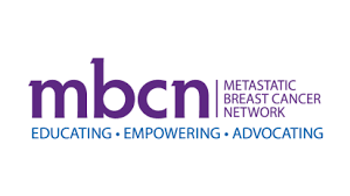
Patients with metastatic breast cancer often feel isolated and alone. The Metastatic Breast Cancer Network is out to change that.

Patients with metastatic breast cancer often feel isolated and alone. The Metastatic Breast Cancer Network is out to change that.


New pathways for secondary-line treatment are coming available to patients with advanced renal cell carcinoma.

Q & A with Naiyer Rizvi on the progression of immunotherapy for non-small cell lung cancer (NSCLC).

"There are not a whole lot of patients that are able to do something like this, so we were doing it for them as well," says Chuck Wakefield. "It meant so much to them to have their names on the banner."

"This is what I've devoted my career to, and it is gratifying to see that really come to pass," says Robert Ferris.

The combination of Opdivo and radiation therapy may provide better disease control and a boost in overall survival in patients with melanoma whose disease has metastasized to the brain.

In an interview with CURE, Philippe Moreau discusses the significance of Ninlaro's approval and the TOURMALINE-MM1 study.

To better understand the implications of the expanded approval and the potential for Opdivo, we spoke to Jedd D. Wolchok from Memorial Sloan Kettering Cancer Center.

Despite the fact that it has been three years since the drug was approved by the FDA, many oncologists still need to be educated regarding Xofigo's benefits beyond pain palliation,

Researchers say breakthrough blood cancer therapies are worth the high cost. Other experts disagree.

The approval of Varubi was based on data from several phase 3 trials of the agent in more than 2,500 patients receiving various emetogenic chemotherapy agents.

These data were presented in late May at the 2015 annual meeting of the American Society of Clinical Oncology (ASCO), a gathering of nearly 30,000 oncology professionals in Chicago.

Does drinking a lot of coffee reduce colon cancer recurrence risk? Possibly.

Within five years after a breast cancer diagnosis, women face an increased risk of weight gain compared with their cancer-free peers, a study has found.

Nausea and vomiting associated with anticancer therapies continue to be among patients' most troubling symptoms.

Several key areas in the treatment of melanoma include the selection of appropriate immunotherapy regimens based on PD-L1 status and improvement of surgical practices.

Advances in molecular profiling technologies have made it easier to understand the molecular characteristics and clinical behavior of breast cancer.

CURE spoke with Bruce D. Cheson to gain a deeper understanding of adding the targeted therapy Gazyva to the chemotherapy Treanda for patients with Rituxan-refractory indolent non-Hodgkin lymphoma.

Melanoma has been at the forefront of the immuno-oncology revolution. This trend continued at the 2015 annual meeting of ASCO, a gathering of nearly 30,000 oncology professionals in Chicago.

Aug. 27, 2000, started as an ordinary day for Dellann Elliott Mydland. She and her husband Chris Elliott and their two children, then 5 and 8 years old, had just finished up a weekend at their cabin and were preparing to relax by the grill at home.

Significant strides have been made in the treatment of patients with immunotherapies and targeted therapies. However, determining which therapies are best for which patients and how to treat patients who don't respond or stop responding to these new therapies is still a challenge.

After receiving approvals for advanced gastric cancer and metastatic non–small cell lung cancer in 2014, Cyramza (ramucirumab) gained yet another approval in April 2015.

Understanding and classifying tumors based on their genomic makeup is an essential component of precision medicine.

E-cigarettes, championed by some as a smoking-cessation tool, may actually decrease the likelihood of quitting smoking, according to a recent population-based study of 1,000 smokers published in The American Journal of Public Health.

Women who are at high risk of ovarian cancer are more likely to undergo preventive ovary removal if they are proactively offered genetic counseling, a new study has found.

While surgical advances and new treatment approvals, including Lynparza and Avastin, have improved the outlook in ovarian cancer, late diagnosis and tumor resistance remain as significant barriers to major progress in treating the disease.

MM-302, a novel antibody-drug conjugate that specifically targets cancer cells overexpressing the HER2 receptor, showed signs of clinical activity in heavily pretreated patients with metastatic, HER2-positive breast cancer.

AACR president-elect Nancy Davidson discusses her leadership plans for the organization, as well as precision medicine in oncology, challenges with research funding, and the role of epigenetics in breast cancer.

Oncologist Don Dizon explains the advantages of intraperitoneal therapy and why further research and education are necessary to bring it to the forefront of ovarian cancer treatment.